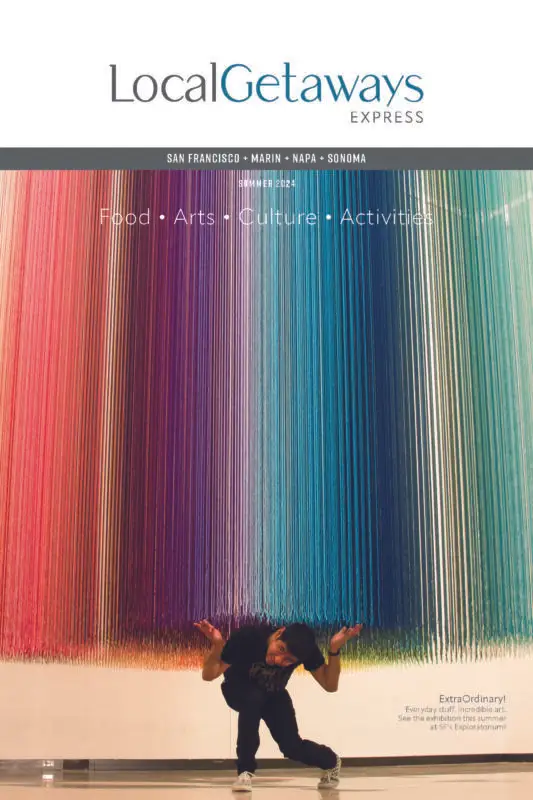Besides the ukulele and slack key guitar, one of the most distinctive sounds in Hawaii is Hawaiian Pidgin English, or Pidgin for short. The colorful creole language — a mix of Hawaiian and English syntax and vocabulary, plus words from Japanese, Portuguese, Ilocano, Tagalog, and others — arose in the plantation era when speakers of all those languages needed an easy way to communicate with each other. Now it’s a source of pride for many that they speak Pidgin as well as standard English (and increasingly Hawaiian, too.)
While it takes years for nonnative speakers to learn Pidgin’s intonations and grammar, it’s easy to learn a few key words before you visit — not to use in your own speech, but to recognize them in others. Be sure to also check out these 15 key Hawaiian words, and top phrases many of which are used in Pidgin too, like lua (loo-uh), meaning toilet or bathroom.
Want rock that cool Big Foot Aloha vibe? We’ve collected a few options for you.
And if you're having a hard time, don't worry...
Other visitors also have a tough time.
1. Bra / braddah / bruddah
Definition: Bro, brother.
Pronunciation: Brah, brah-dah or bra-dah
How to use it in a sentence: Howzit braddah? How you? You good?
2. Bumbye
Definition: Eventually, later on.
Pronunciation: Bum-bye
How to use it in a sentence: Wen we go Disneyland? Bum-bye.
3. Buggah
Definition: Person, usually male.
Pronunciation: Bah-guh
How to use it in a sentence: Da buggah is always late.
4. Choke
Definition: A lot.
Pronunciation: Choke, like in standard English.
How to use it in a sentence: You like one penny? No worries, I get choke!
5. Hamajang, hammajang
Definition: Messed up, askew, out of order.
Pronunciation: Hah-mah-jang
How to use it in a sentence: My hair was all hamajang so I put in hair gel to make it nice.
6. Kau kau
Definition: Food, meal, to eat.
Pronunciation: Cow-cow
How to use it in a sentence: My maddah wen make some kau kau. You like?
7. Moke
Definition: This is the local version of a stereotypical redneck male. He drives a pickup truck and hunts, but probably surfs, too. Pidgin is his preferred language, and rubber slippahs (defined below) are his preferred footwear.
Pronunciation: Mok’ — rhymes with “choke”
How to use it in a sentence: All da mokes wen chase me outta da watah!
8. Shi shi
Definition: Pee, to urinate.
Pronunciation: She-she
How to use it in a sentence: Please shishi in the lua (bathroom), and not in the ocean — coral bleaching is real.
9. Slippahs
Definition: Flip-flops, sandals (as seen up top). Generally the final “r” isn’t pronounced in the English words in Pidgin — something it has in common with some Boston and British accents.
Pronunciation: Sli-pah
How to use it in a sentence: Ey brah wea my slippah stay?
10. Stay
Definition: Is, are, but only when referred to impermanent states like location or emotion, similar to “estar” in Spanish.
Pronunciation: Stay, like in standard English.
How to use it in a sentence: Wea Brian stay?
11. Stink-eye
Definition: A dirty look of disapproval, doubt or distrust. Try to speak Pidgin and you’re likely to get this.
Pronunciation: Stink-eye, like in standard English.
How to use it in a sentence: Eh, no geev me dat stink eye.
12. Tita
Definition: The female equivalent of “moke.” Mess with her and you’ll get more than stink-eye.
Pronunciation: Tih-tah
How to use it in a sentence: She stay full on tita, yeah?
13. Wen
Definition: Used in front of a verb to signify past tense. “He wen go,” means, “he went.” Wen also indicates past tense when used in front of a verb.
Pronunciation: When
How to use it in a sentence: How much you wen geev him?
Still struggling?
Here’s a quick lesson from a pro!
Looking for more locally inspired Hawaii travel tips? Subscribe to our Aloha Friday Newsletter?
Follow us on Instagram @localgetaways!






1 thought on “Top 13 Hawaiian Pidgin Words to Know Before You Go to Hawaii”
FYI… MOKE not Mokè (a Name meaning born Here} is not used anymore not since the 90s Haole is used mostly by other Haoles or as a discription. But both words are now Concidered derogatory and people getting in big kine trouble saying it at the wrong time and context. A school security guard called my daughter a ha’ole he now cleaned rubbish out the mall parking lot. So I’d update my page if I were you. I stopped at Mokè because you catch dirty likins if u say that you said it’s the equivalent to calling someone a redneck… MOKE (no okina) means dumb, stupid, one of low IQ, possibly special needs. See why we stopped in the 1990s-early 2000. Ima read the rest. Hopeing no more hurtful words…?